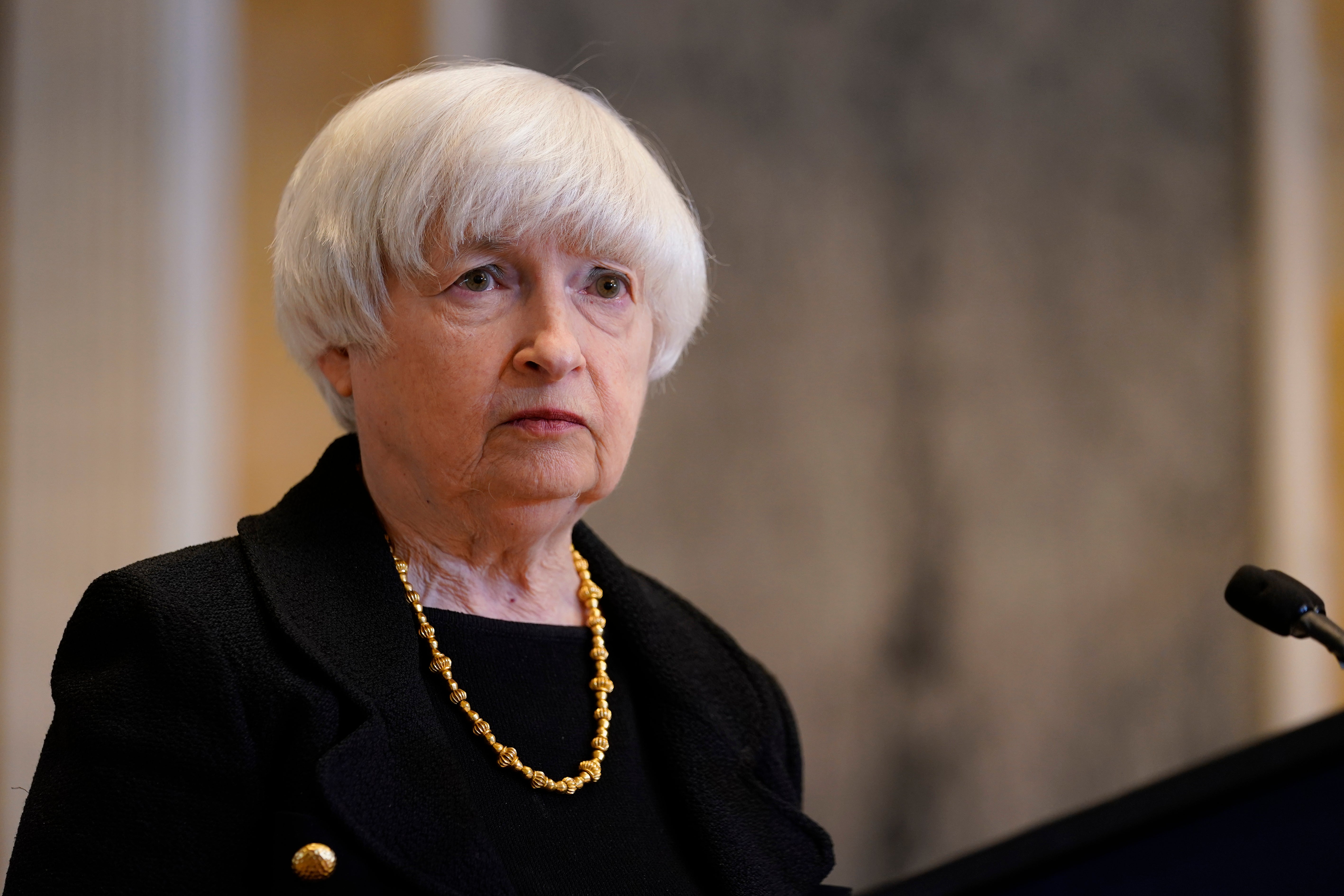Yellen says more shocks likely to 'challenge the economy'
Treasury Secretary Janet Yellen says the global pandemic and Russia’s invasion of Ukraine highlight the possibility of big economic shocks in the future

Your support helps us to tell the story
From reproductive rights to climate change to Big Tech, The Independent is on the ground when the story is developing. Whether it's investigating the financials of Elon Musk's pro-Trump PAC or producing our latest documentary, 'The A Word', which shines a light on the American women fighting for reproductive rights, we know how important it is to parse out the facts from the messaging.
At such a critical moment in US history, we need reporters on the ground. Your donation allows us to keep sending journalists to speak to both sides of the story.
The Independent is trusted by Americans across the entire political spectrum. And unlike many other quality news outlets, we choose not to lock Americans out of our reporting and analysis with paywalls. We believe quality journalism should be available to everyone, paid for by those who can afford it.
Your support makes all the difference.Treasury Secretary Janet Yellen said Thursday the global pandemic and Russia’s invasion of Ukraine highlight the possibility of big economic shocks in the future, adding that downturns are “likely to continue to challenge the economy.”
Her address at the Brookings Institution looked at lessons learned from economic downturns of the past and said countries need to build in "recession remedies" to protect people in the U.S. and globally going forward.
With “large negative shocks” inevitable, she said, policymakers have learned from the Great Recession that it's imperative to exit economic downturns “as quickly as possible.”
“Countries will fare better if their economies are more resilient and less fragile," she said. “Improved understanding of breaks in supply chains, increases in commodity prices, bursting of asset bubbles, and labor and productivity shocks can help policymakers implement reforms that bolster our economic resilience."
The past several years have been marked by a worldwide pandemic that prompted both the Trump and Biden administrations to issue trillions of dollars in federal stimulus aid, which economists say contributed to inflation levels at their highest points in four decades. And now the war in Ukraine has had major impacts on global energy and food prices, along with other commodities.
The Conference Board's consumer confidence index edged down slightly in April.
Yellen called for more permanent housing safety assistance for renters and homeowners and applauded recent improvements to the unemployment insurance system and stimulus payments, stressing the importance of U.S. “recovery policies that shorten the duration of recessions and mitigate economic pain.”
She promoted Biden administration efforts to reduce U.S. reliance on fossil fuels and push for greater energy independence.
“These shifts will mitigate our future vulnerability to oil price shocks," she said. "At the same time, they will abet the transition to cleaner energy sources which will, in due course, lessen the risks tied to natural disasters and climate change.”